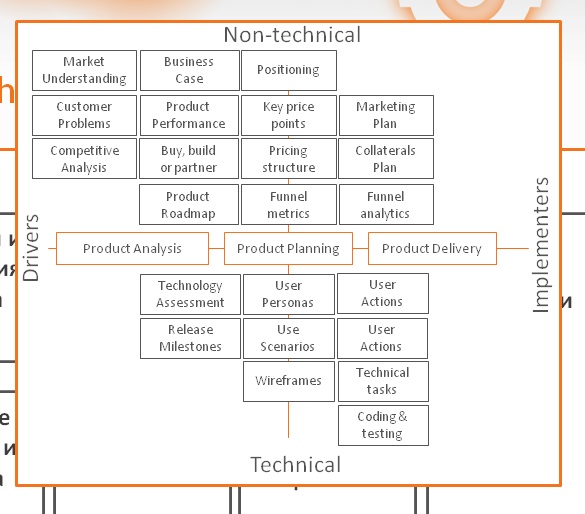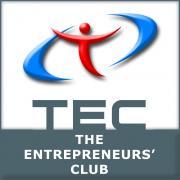Deep Dive Day 3
Andrew Filev, Wrike
Customer discovery very likely to be driven by the founders:
- if not the founders -> different dynamics
- customer asks - why are you not a founder?
- customer asks: i want this. you - OK, i will ask founders
- where is engineer/PO? we are loosing time!! it's important when founder has to have personal contact with the customer
1st and 2nd product category: product is the key!!
- typical founder in this case - product guy, who talks to the customers
- product / engineering background is also good for marketing - really crucial to build a replicable & scalable process in customer acquisition and conversion funnel
starting biz:
- leap of faith = hypothesis
- select the key hypothesis -> plan to validate hypothesis is the key!!
- randy komisar @STVP http://ecorner.stanford.edu/author/randy_komisar and his book: Getting to Plan B.
- calculate all the math before you build a product
- have the right founders mix (technical - business)
different roles/tasks in marketing:
- VP Online Marketing - more analytical, calculating conversions
- VP communications - blog, Social Media, etc
- PR functions (working with WSJ, Gartner, etc) can be oursourced
key things in hiring and retaining ees:
- continuous learning - feedback, ideas and concepts change all the time
- hire only when you can hire the best expert
- always improve
- high requirements for hiring
- but everybody does shit => or things happen
Philipp Korn, TriNet and Laurie Lumenti, Silicon Valley Bank
- Trinet - payroll & HR service provider
- less the five people - don't need HR, more than 250 - build internal HR
- SVB - financial and accounting services to VC-backed companies
 Sondra Card - HR
Sondra Card - HR
- 1st year founders - product development, product strategy, engineering
- first 6 months - engineering leadership, product strategy is important
- CAD tool case study - helped to hire 12 engineers, had product manager to talk to customers
- better luck in hiring people who already have been in startup environment before - having prior startup experience is good!
- roles matrix
Phil Libin, CEO Evernote
qualities to build meaningfull and enduring tech biz:
- mastery
- infatuation = in love with your idea, obsessive
economy drivers:
- scarcity - older times
- love - now! => make product that increases perceived value over time!!!
evernote - excellent case of positioning a company in a new market
- don't focus on competitors ;)
- we are not about a note taking - we are about memory
- competition in reality is not that important ;)
- TIVO case: fail as miserably as TIVO failed!
retaining and converting customers case study:
- cohort = class
- important - being long term greedy
- build a company to maximize value in the long term
remove any friction:
- signup its free
- no data lock in, export anytime. if you decide - leave and take anything with you. all your data - yours
some metrics:
- $0.4 arpu
- $0.06 cost per user
- user NPV = $26
- 2.9% converted to premium now (keep it less then 5% :)
company re-structuring and culture
- put all your creative energy on building an amazing product
- focus! "interesting" is the enemy of correct
- excellence, technical brilliance is a major (+) of russian engineers
- two ways to fill in the gaps: structure -> team or team -> structure
- no sales people @evernote ;) sales people kill culture :)
- product team owned by Phil. Dave CTO (architecture, data centers, support), Phil Product (engineering, QA)
- 30->10 people as Phil joined evernote) Simplify & Focus!!!
Vivek Mehra's comments (Partner, August Capital)
- from the VC's prospective, team is the most important
- 3 founders is the best
- if we, as VCs, know more than entrepreneur, something is wrong with the company
- entrepreneur shall know answers to all questions
- how we invest: we do a lot of due diligence (at least 1.5 month)
- there are only a few major terms that is best to agree first between the founders and VCs before going to lawyers to finalize (among them, pre-money, post-money, capital raised, liquidation preferences, vesting for founders, option pool)
- investor shouldn't tell you how to run your business. his role is to bring strategic value, expert view from the outside, something founders cannot always see
- valuation is done by VCs - entrepreneurs shouldn't provide this info; sort of "let the market decide - now you, investors, do your homework" :)


